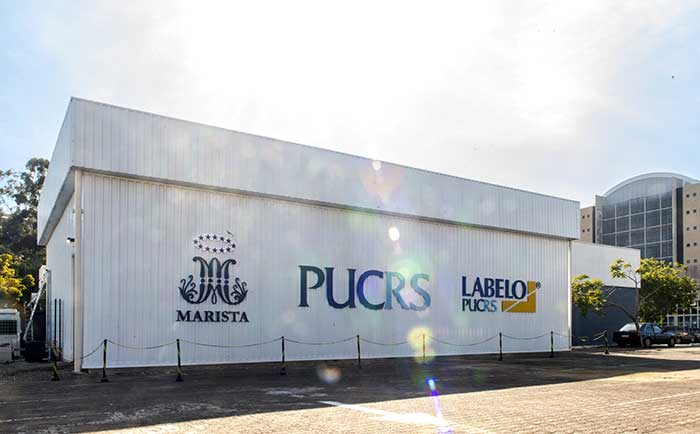This Thursday (25th), PUCRS inaugurated the Energy Efficiency Laboratory for Air Conditioners, which is part of LABELO – a laboratory complex that offers calibration and certification services for electrical and electronic products. The new space expands the capacity of LABELO, which since 2003 has carried out tests on air conditioners of up to 36,000 BTU/h. Now, the laboratory can test devices of up to 60,000 BTU/h, including the Cassete models, installed on the ceiling.
The PUCRS laboratory is the only one in the country that meets all the standards and regulations required for air conditioners, both in terms of consumer safety and energy efficiency. Thus, the institution collaborates with sustainability, as the LABELO tests are used by Inmetro and the MME to ensure that the equipment sold is in compliance, reducing the environmental impact caused by energy consumption.
smart use of resources
Brazil has a program that reports the energy efficiency of products to consumers, called the Brazilian Labeling Program (PBE). The program is based on norms and standards, including international ones, but which take into account temperature differences in the country’s regions. Inmetro is the body responsible for creating and supervising the requirements and technical regulations for measuring the energy efficiency of products. For this, he counts on the help of accredited laboratories, such as LABELO-PUCRS, which is internationally recognized and has been working at PUCRS for over 50 years.
LABELO-PUCRS recently inaugurated a new laboratory to test air conditioners, expanding its capacity and scope. The new space allows manufacturers to test and develop new, more technological and efficient products, increasing research, development and innovation opportunities for Brazil. Thus, PUCRS contributes to the quality of the energy infrastructure in the country, says Israel Teixeira, Director of Labelo.
Products tested by LABELO-PUCRS receive an energy efficiency label that tells consumers how much energy they consume. The label has a grade ranging from A to D, with A being the most efficient and D being the least efficient, depending on the type of product.
The energy efficiency of air conditioners is especially important, as they represent more than 10% of the world’s electricity consumption and tend to increase their demand. According to the International Energy Agency (IEA), energy consumption by these appliances could double by 2040. In Brazil, the situation is similar: the Energy Research Company (EPE) shows that energy consumption by residential air conditioners has grown 237% in the last 12 years.
Structure to support the evolution of the sector in Brazil
With this initiative, LABELO-PUCRS consolidates itself as one of the main research and testing institutions in Brazil, collaborating with the evolution of quality and consumer safety of air conditioning equipment used in the country. Among the objectives of the expansion is also to promote sustainability and preservation of the environment, in addition to providing people with more and more information about the consumption of appliances, allowing more rational choices regarding energy consumption, with impacts on the economy. households, since energy costs are relevant.

Although Brazil has a mostly renewable energy matrix (according to data from the Energy Research Company, based on its National Energy Bulletin, 83% of the country’s electricity production is renewable, one of the best rates in the world), investment in new plants and infrastructure also causes environmental damage, in addition to demanding a large volume of public money, being essential to maintain efficient products.
“Therefore, the development of more efficient products for the sector is one of the great challenges for the industry and for the development of public policies to achieve energy efficiency goals and, of course, to reduce the financial expenditure on energy consumption”, he argues. Israel.
The refrigeration industry, in response to the energy consumption issues involved, has been developing new solutions over the last few years. In order for the benefits of these new technologies to be captured in laboratory tests, it is necessary to apply appropriate methodologies to determine the energy efficiency of these products.
Inmetro (National Institute of Metrology, Quality and Technology) published, in 2020, an ordinance in which it established a new methodology for testing air conditioners as applicable in Brazil, enabling a more accurate validation of new technologies for air conditioners. It should be noted that the Institute took into account, in its document, the studies coordinated by the National Energy Conservation Program (Procel) and carried out by Labelo-PUCRS, on the internalization of the seasonal metric, which suggested the adoption of the test methodology present in the international technical standard ISO 16358-1, in addition to establishing proposals for test temperatures, test points and temperature bins (statistics related to the climate year) suitable for the Brazilian reality.






